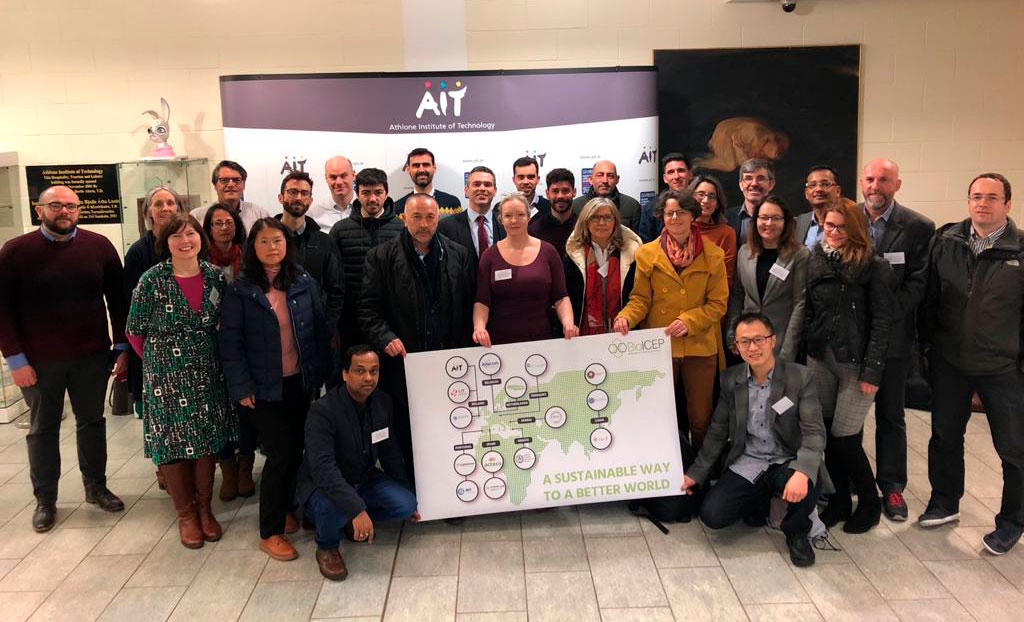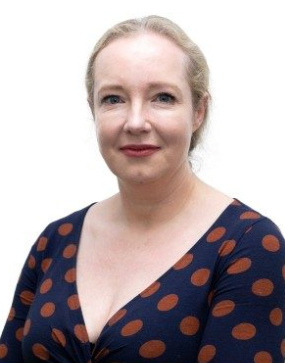 |
BIOICEP - Newsletter October 2020
Bio Innovation of a Circular Economy for Plastics
|
|
|
|
|
|
|
|
|
|

For decades, the socioeconomic model has been based on a linear concept of production and consumption, leading to the production of large quantities of waste, which is finally disposed of in landfills. However, in recent years, the circular economy has emerged as a model that seeks to promote sustainable development. This model proposes different strategies throughout the value chain of products and services. The circular economy approach seeks to minimise the quantities of virgin raw materials used in products, whilst also minimising waste production. To achieve this, interconnections must be established between waste generated and the production chain to enable the material and economic loops of resources to be closed.
In the plastics sector, the flow of materials from the waste generated to the plastics production chain must be created and established.
Our approach is The Bio Innovation of a Circular Economy for Plastics (BioICEP) consortium, a pan European-Chinese collaborative formed to reduce the burden of plastic waste in the environment. The countries have been selected to represent different mixed plastic pollution environments, with specific partners selected which have the expertise and facilities to carry out the necessary technical innovations. Three innovative booster technologies are at the core of this solution: accentuating, expediting, and augmenting plastics degradation to levels far in excess of those current achievable.
Our approach is a triple-action depolymerisation system where plastic waste will be broken down in three consecutive processes:
-
Mechano-biochemical disintegration processes, including a new proprietary sonic-green-chemical technology to reduce the polymer molecular weight of the base polymer to make it amenable to biodegradation;
-
Biocatalytic digestion, with enzymes enhanced through a range of innovative techniques including accelerated screening through novel fluorescent sensor and directed evolution;
-
Microbial consortia developed from the best in class single microbial strains, which combined leads to highly efficient degradation of mixed plastic waste streams. The outputs from this degradation process will be used as building blocks for new polymers or other bioproducts to enable a new plastic waste-based circular economy.

https://bioicep.eu/
info@bioicep.eu
|
|
|
|
|
|
|
|
|
|
|

The Kick-Off Meeting took place 10th-11th February in Athlone (Ireland). On the first day were the welcome and the BioICEP objectives presentations. The National Chinese Science Foundation closed the first part of the day. After the partners presented their companies and their institutions. Finally, there was a networking session with the consortium, where they made connections crucial for the project to function properly.
On the second day, two working groups were formed: Mechno-degradation & reprocessing and Biodegradation & Bioprocessing. The meeting closed with an Implementation and Exploitation Actions and Training.
|
|
|
AIT Leads Global Effort to Tackle Plastic Pollution and Develop Next Generation Materials
|
|
|
|
|
|
|
|
|

Dr Margaret Fournet is co-ordinating AIT’s new flagship EU-China Horizon 2020 project, spearheading the clean-up of the global plastic waste burden. Dr Fournet is leading a team of 15 partners spanning 9 different countries on the “BioInnovation of a Circular Economy for Plastics” (BioICEP), which is dedicated to the bioconversion of waste plastics into sustainable plastics for the future.
As an experienced and inspiring Physics Lecturer with 15 years demonstrated delivery of world-class collaborative research projects and outstanding student performances, Dr Fournet has lectured extensively both nationally and internationally. Dr Fournet received a PhD from the School of Physics Trinity College Dublin in 2002, and joined the Polymer Technologies team at AIT in 2017.
Dr Fournet’s research is centred on tailored green technologies designed to overcome global challenges. Bio-inspired sustainable plastics and biomimetic medical implants for enhanced regenerative health are integral parts of her research focus. Three major strands of her research are:
- Bio-mimicking technologies for sustainability and enhanced regeneration
- Innovative technologies accentuating, expediting, and augmenting plastics degradation
- New hybrid bioplastics to provide the plastics of the future which operate in tandem with the natural environment.
In the new era of awareness of the fragility of the natural world and the dependence of global economies and societies on environmental wellbeing, Dr Fournet works closely with consumers, industry and policy makers to foster and implement opportunities to deliver of new avenues to a more sustainable world.
|
|
|
First International Electronic Conference on Catalysis Sciences
|
|
|
|
|
|
|
|

Dr. Evangelos Topakas, from Biotechnology Laboratory, School of Chemical Engineering, National Technical University of Athens, Greece, partner of BioICEP project, will be in sessions Charis in the 1st International Electronic Conference on Catalysis Sciences in 2020 (ECCS 2020) that is hosted online.
ECCS 2020 will present the latest research on the use of catalysts in these critical areas. Topics of interest include, but are not limited to:
- Single Atom Catalysts (Session A)
- Electrocatalysis (Session B)
- Photocatalysis (Session C)
- Catalysts for Natural Gas Conversion (Session D)
- Catalysts for Biomass Conversion (Session E)
- Computational Catalysis (Session F)
- Catalyst Synthesis and Characterization (Session G)
- Biocatalysis (Session H)
- e-WSeS 2020 (Session I)
BioICEP will be presented at the conference. The 1st International Electronic Conference on Catalysis Sciences will be held on 10–30 November 2020. ECCS 2020 aims to promote and advance the exciting and rapidly changing field of catalysis. All proceedings will be held online at https://sciforum.net/conference/ECCS2020.
|
|
|
|
|
Second BioICEP Consortium Meeting
|
|
|
|
|
|
|
|

On September 15, the BioICEP Consortium Meeting took place. Due to the COVID-19 situation the second meeting took place online, but this was not a problem to review the project’s key achievements to date and the expected progress towards each work package.
|
|
|
The BioICEP project to organise a poster session during BioICEP General Assembly meeting (Oct 22-23, 2020)
|
|
|
|
|
|
|
|
|
The BioICEP consortium has organised a call for posters for the postgraduate and research community within each of the partner institutes and organisations to propose how their current research work is in line or fits with the ambitions and goals of BioICEP. The Consortium of BioICEP fully support collaboration, knowledge sharing and listening to the up and coming talent pipeline of researchers to assist in our mission to drive innovation and excellence for the BioICEP project.
A selection of posters will be invited to make a flash 2-minute presentation of their science at the BioICEP General Assembly meeting to be held October 22nd, 2020.
The two main themes are sustainable degradation of plastics and biopolymer fabrication. Prizes will be given to the Best Poster and Best Runner up Poster in this challenging area for our scientific community and global society.


The Bioicep project has received funding from the European Union’s Horizon 2020 research and innovation programme under grant agreement No 870292.
|
|
|
|
|
|
|
|









